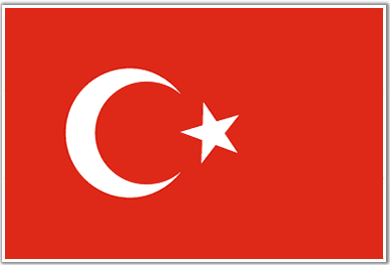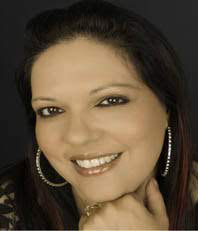By ABDULHAMİT BİLİCİ
 Questions began pouring in immediately following our return from the NATO summit in Lisbon, which addressed the missile defense shield issue. What did Turkey gain in this summit? Were all of Ankara’s requests met as reflected in the media? When are the missiles arriving?
Questions began pouring in immediately following our return from the NATO summit in Lisbon, which addressed the missile defense shield issue. What did Turkey gain in this summit? Were all of Ankara’s requests met as reflected in the media? When are the missiles arriving?
Was Turkish diplomacy truly successful in Lisbon or are we merely facing some PR initiatives? There is no doubt that these and other similar questions are looming over us. But instead of answering them one by one, it is more appropriate to unravel the results of the two-day Lisbon visit in light of the information given to us by the heads of government, bearing in mind the phases the matter has gone through so far.
For one, there is no need to become ecstatic and perform a victory dance. This project, called the “missile defense shield” in vernacular discourse, is not the result of Turkey’s current vision. On the contrary, it is in conflict with the “zero problems with neighbors” understanding that has been successfully executed in Turkey’s more recent political period and a product of an approach that reeks of the Cold War. This is because even if no names are dropped, the enemies that the project aims to address are countries with which Turkey is looking to maximize its relations: Iran and Syria.
There is no doubt that the mastermind of the project is the US. However, it is not a project that reflects the vision of Obama, who, in essence, is not all that far from the Justice and Development Party’s (AK Party) foreign policy stance. Similar to the wars in Iraq and Afghanistan, it is a bad legacy left from the George W. Bush era. What Obama has done is revise and simplify the voices that scream “We want war with Iran,” and mute the volume of Israel’s hawkish circles. Bush had plans to involve Poland and the Czech Republic in this system, drawing ire from Russia. Obama, however, decided that there was no need for this, as research he had conducted proved that placing more simple systems on ships in the Mediterranean and in countries close to Iran, such as Turkey, could block possible missiles. Thus the cost would drop from billions of dollars to millions, giving the system the added bonus of being enacted in 2011 instead of the originally envisaged date of 2018. Furthermore, Russia would be won over and Obama would show the hawks that he’s not all that much of a dove after all.
It would be easy to place radars on ships in the Mediterranean. However, Turkey, which has good relations with Iran, will need some convincing. The question of why the US insisted on Turkey is still a question begging for an answer. Could a country in the region that was willing to comply not have been considered? Regardless of the answer to this question, this is how the long-debated issue of the missile shield landed on Turkey’s agenda. Turkey would either say no, as it did in the vote at the United Nations to sanction Iran, being at odds with the West and thereby giving way to the reigniting of talks regarding Turkey’s axis and its existence in NATO, or Turkey would to bring the project more in line with its own needs and work on minimizing the damage it would cause.
The situation was critical. The leaders of the Turkish state convened under the president. The second option weighed heavier and the absolute essentials were determined. This would be a NATO project in which Turkey would have a say, not the US. Iran or other countries were not to be named. The costs would be shared and the system would be set up so that the whole of Turkey and all NATO countries would be protected.
The project may have received a stamp of approval in Lisbon, but all of Turkey’s requests were met. An important role is undoubtedly being played by both Turkey, by doing a good job of completing its homework, and Obama, by telling his men to, regardless of what happens, walk away from the summit with positive results.
In this regard, Turkey’s biggest gain was the prevention of a crisis with the US, a crisis whose repercussions would reflect in Turkey’s national politics as well. The following words of President Abdullah Gül summarize this concern well: “If our demands were not met, we would have been forced to prevent the process. And this would have relegated us to the status of the country that blocked NATO.”
The second gain was the transformation of the US-patented project into a NATO project. And even if symbolic, it is important that Iran’s name is not mentioned in the document that is published. The project has had Iran in mind from the very beginning. In the commission’s report, headed by Madeline Albright, who prepared NATO’s new strategic concept draft document, Iran was mentioned specifically. Furthermore, it wasn’t only the US but France as well that is in favor of Iran being mentioned. Perhaps looking out for Iran to this extent damaged Turkey’s image in the West, but in the end the document produced was shaped by Turkey’s request.
What do you think, was I able to answer the questions I posed in the beginning of this piece?
Source: Today’s Zaman
More Related Articles
Turkey claims success for its diplomacy at NATO summit
Warning that opens Iran’s eyes- ABDULHAMİT BİLİCİ
What is the place of Turkey according to Obama?- ABDULHAMİT BİLİCİ

Debbie Menon is an independent writer based in Dubai. Her main focus are the US-Mid- East Conflicts. Her writing has been featured in many print and online publications.
Her writing reflects the incredible resilience, almost superhuman steadfastness of the occupied and oppressed Palestinians, who are now facing the prospect of a final round of ethnic cleansing. She is committed to exposing Israel’s Lobbies’ control of ‘U.S. Middle East Policy. Control’ which amounts to treason by the Zionist lobbies in America and its stooges in Congress, and that guarantees there can never be a peaceful resolution of the Israeli-Palestinian conflict, only catastrophe for all, in the region and the world.
Her mission is to inform and educate internet viewers seeking unfiltered information about real events on issues of the US/Middle East conflicts that are unreported, underreported, or distorted in the American media. PS: For those of her detractors that think she is being selective and even “one-sided,” tough, that is the point of her work, to present an alternative view and interpretation of the US-Israel-Middle East conflict, that has been completely ignored in mainstream discourse.
The purpose is to look at the current reality from a different and critical perspective, not to simply rehash the pro-US/Israel perspective, smoke and mirrors that has been allowed to utterly and completely dominate Mainstream discourse.
ATTENTION READERS
We See The World From All Sides and Want YOU To Be Fully InformedIn fact, intentional disinformation is a disgraceful scourge in media today. So to assuage any possible errant incorrect information posted herein, we strongly encourage you to seek corroboration from other non-VT sources before forming an educated opinion.
About VT - Policies & Disclosures - Comment Policy



